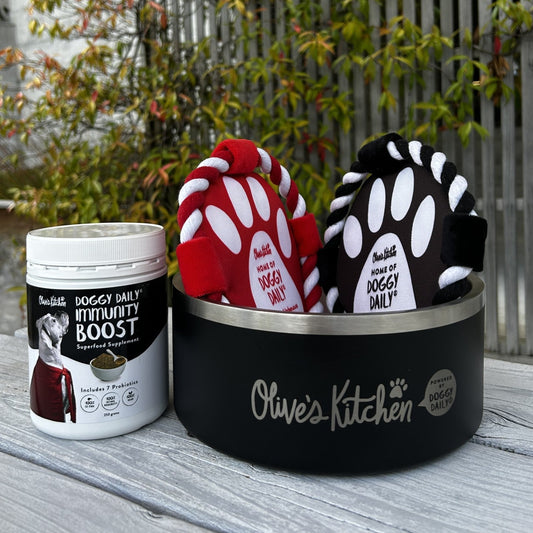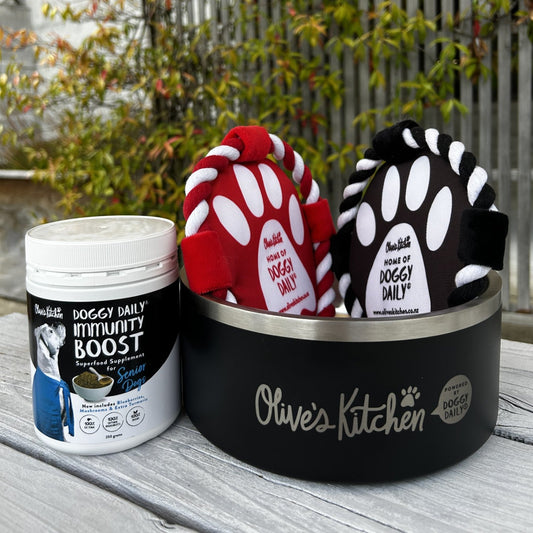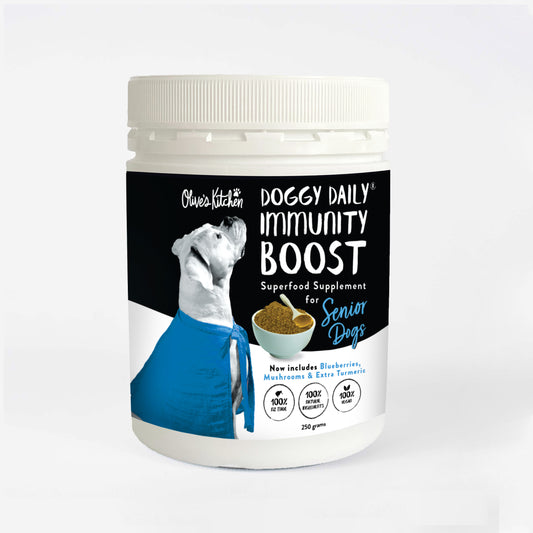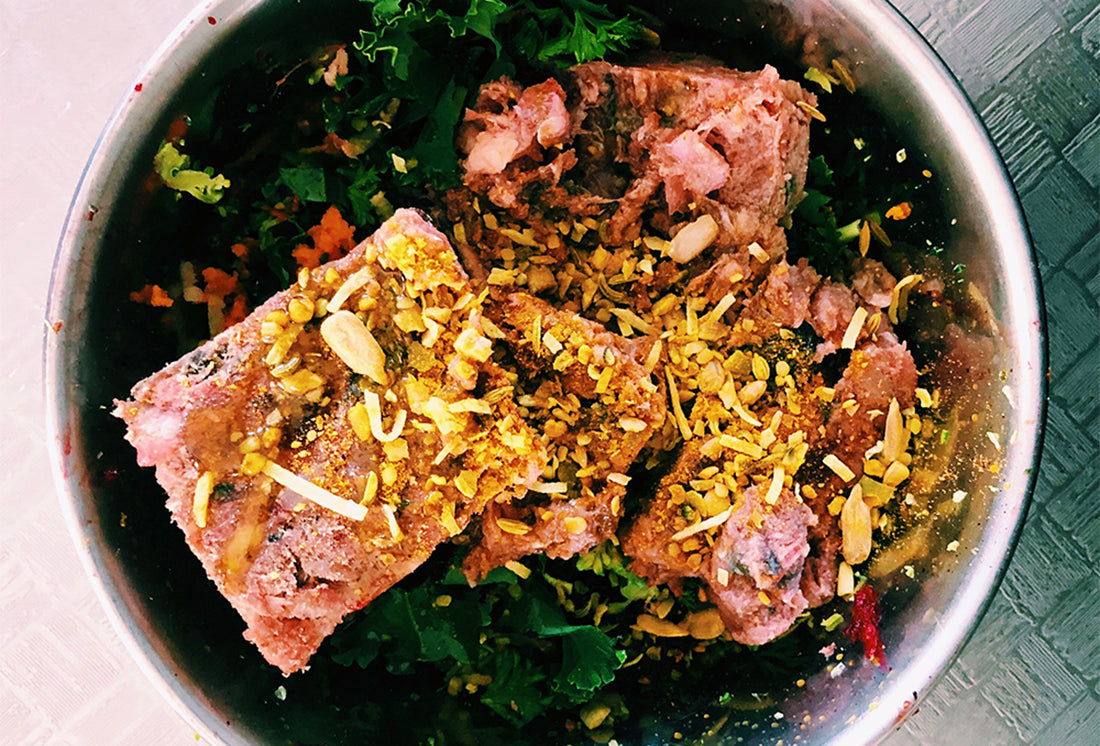Just like us, dogs are what they eat. learning the truth about your dog’s diet and making simple can prevent you and your pooch from a lot of suffering, and also save yourself a fortune in vet bills.
Here are 10 important and scary truths you may not know about what your dog’s diet.

1. Commercial Dog Food Is “Fast Food”
Heavily-processed fast foods can cause major health problems in people so how can fast foods be good for our dogs? Dogs have similar nutritional needs to us and commercial dog food is a processed food that is not good for their overall health. What we do to our own health with processed foods has the same effect on our dogs, only faster.
2. People Food Is Good for Dogs
Despite what you’ve heard, wholesome ‘people food’ is good for dogs. The same fresh, nutritious foods we eat can offer your dog the nutrition they need. Take the time to learn the small differences between human and your dog's nutritional needs. (Hint: no onions, grapes or raisins. Go easy on carbs, avoid wheat and corn.)
3. Don’t Presume the Food Your Vet Sells Is A Superior Product
A lot of what your vet learns comes directly from pet food companies, sales reps, articles, studies, and seminars. If your vet hasn’t studied and experimented on their own with raw or homemade diets, it’s unlikely that they know the bad food from the good.
4. The Quality of Processed Commercial Foods Is Suspect
Dog food may legally contain “4-D” meat; meat from dead, dying, diseased and disabled animals. The cheaper the food, the cheaper the ingredients, the worse the nutrition. It’s important to read the labels!
5. Kibble Does Not Clean Teeth
Almost all dogs age three and over suffer from dental disease. Although a small study once suggested that kibble might clean teeth better than canned food, better doesn’t mean effectively. Relying on kibble or hard treats to keep your dogs teeth clean will only lead to vet bills and lost teeth.
6. “Complete & Balanced” Does Not Mean “Optimum”
“Complete and balanced” means that a food meets minimal health requirements. Companies that conducted feeding trials often test only the leading products and use only a small number of dogs for a short period of time. Over time, nutrient and enzyme deficiencies are increased. Of course, complete and balanced is better than not complete and balanced, however, better does not mean good.
7. Feeding the Same Food Day After Day Limits Nutrition
Imagine eating corn, rancid fat and chicken wing bones for every meal. We are urged to eat a variety of foods, both for improved nutrition and also to prevent allergies, and dogs need variety too.
But variety can cause gastrointestinal upset in dogs, right? In the short run, yes. However, gut upset when switching foods is a sign your dog needs more variety. Once good nutrition has helped the digestive system, your dog can eat with variety. It is always best to change foods gradually over several weeks while your dog’s gut adjusts.
8. Kibble Is Not Better Than Canned
Most kibble is preserved artificially. Kibble begins as a dry cooked meal and is exposed to more heat than canned, destroying nutrients. Kibble is linked to kidney and bladder problems, it is dehydrating, and is also known to cause bloat, a deadly problem especially for larger dogs. Of course, canned isn’t perfect either and fresh is always best, raw or cooked.
9. Some Common Foods Can Be Hazardous to Canine Health
Cooked bones and rawhide chews can cause major health problems requiring emergency surgery. Onions, grapes, raisins, chocolate, and other common foods can be toxic for dogs and must be avoided.
10. Beware of Corn, It Kills
Most kibble is loaded with corn, unfortunately, the corn isn’t the luscious kind we eat. It’s feed corn like cattle eat or cheaper feed corn remnants that have been condemned for human consumption. If that weren’t bad enough, corn is very fattening!
Woof!
This blog was researched and put together by the Doggy Daily Team.
For more information on Superfoods from one of our Favourite Vets Dr Liza, read a great blog by Dr Liza, one of our preferred vets, here: http://www.drliza.co.nz/optimal-nutrition-optimal-health-well-being/





